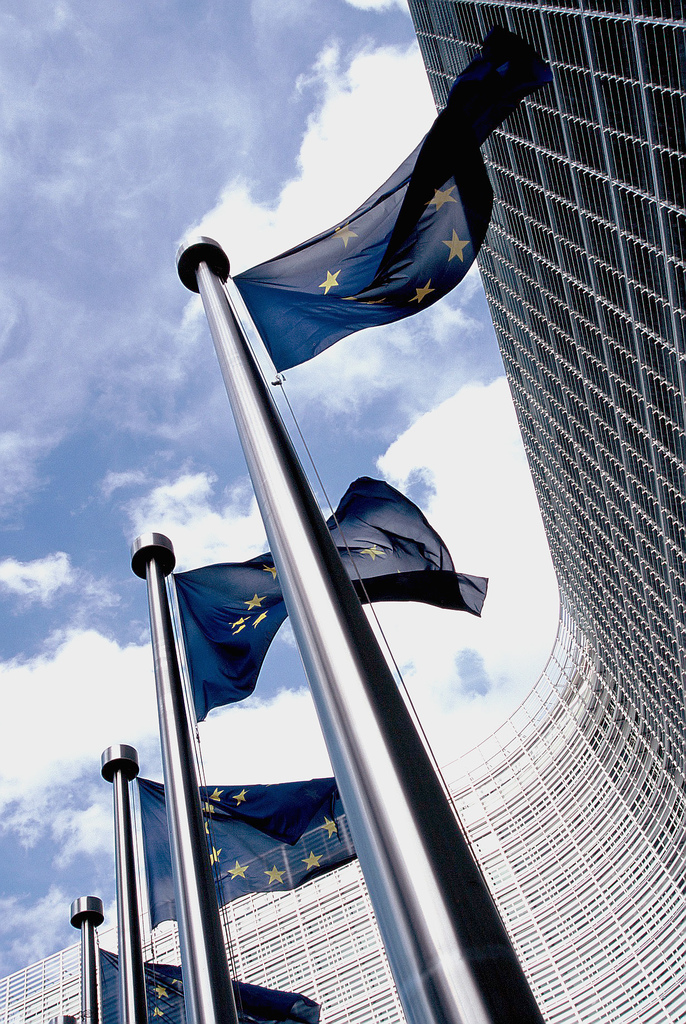Brussels, Belgium—Disagreement over the next EU budget is holding up the European Defence Fund (EDF) and its projects.
The EDF was launched in June 2017 and will be operational in 2019. The Fund’s primary objective is to improve the European defence industry by making it more efficient and coordinated.
A European Commission spokesperson said that “The total value of collaborative projects which the European Defence Fund will generate will depend on funding rates the Commission will set for projects in the work program.”
An agreement between the European Parliament and the Council “is essential to ensure that EU funds start delivering results on the ground as soon as possible,” added the spokesperson.
Ever since President Trump’s election, Europe has been shyly reasserting herself on military and foreign policy issues. The EDF, and similar projects such as PESCO and CARD, are the initial steps towards a more autonomous EU.
“The pan-European collaborative defence research projects supported by the Fund are designed to ensure Europe’s technological leadership, lay the foundations for future defence capabilities and support a more innovative and competitive European defence industry,” said Elżbieta Bieńkowska, the internal market, industry, entrepreneurship and SMEs Commissioner.
Despite the lack of a final agreement regarding the funds, the EDF has already begun to produce results. An auspicious pan-European project called Ocean-2020 is in the early implementation stage. The project aims to improve maritime surveillance and interdiction operations. Ocean-2020 will utilise unmanned submarines and aerial drones to gather intelligence that will then be combined with conventional systems to produce a more holistic operational picture.
Such a system will prove helpful with the rampant immigration that plagues Europe’s southern shores.
A consortium led by the Italian defence giant Leonardo will run the project. In total, 42 companies from 15 different EU countries will be involved. The project will receive a grant of €35.5 million from the 2017 EU budget.
Two demonstrations will take place in 2019: the first, led by the Italian Navy, will take place in the Mediterranean, and the second is scheduled for the Baltic Sea and will be conducted by the Swedish Navy.
But this isn’t the only project underway.
Already have an account? Sign In
Two ways to continue to read this article.
Subscribe
$1.99
every 4 weeks
- Unlimited access to all articles
- Support independent journalism
- Ad-free reading experience
Subscribe Now
Recurring Monthly. Cancel Anytime.
An adaptive camouflage pattern called ACAMSII plans to shield soldiers from sensorial tracking, and it will involve textile, aerospace, and defence system integrator companies.
The Gossra project aims to improve the compatibility of high-tech systems carried by soldiers (for example, NVGs and radios).
Finally, the Vestlife project seeks to develop an ultralight body-armour that will enable soldiers to be more effective. The fighting in Afghanistan, with its mountainous terrain, revealed the necessity for a lighter combat loadout.
“When we launched the European Defence Fund, we announced that collaborative projects could generate a total investment in defence capability development of €5 billion per year after 2020,” added the spokesperson.
A further €8.9 billion will co-finance projects that proceed beyond the research phase thus assisting the member states with prototype development as well as certification and testing requirements.
The crux of the matter is that Europe seeks to become more independent in security and defence. “The European Defence Fund is essential to bring more cooperation between defence companies and the military in the European Union and to ensure Europe’s strategic autonomy,” added Elżbieta Bieńkowska. But to do so, an agreement over the funds is essential. More importantly, it will reveal if the EU is serious about its military and foreign policy autonomy.










COMMENTS